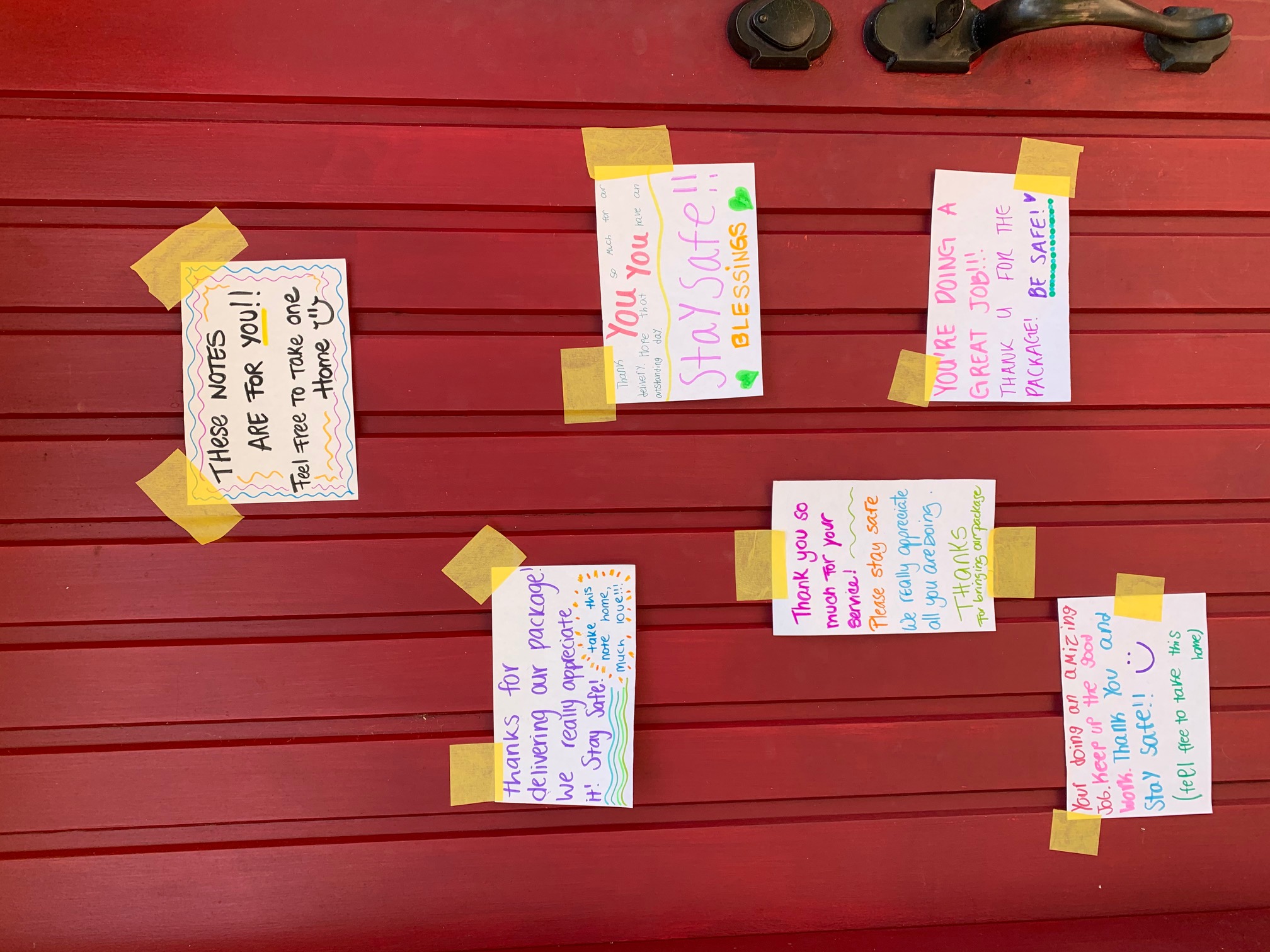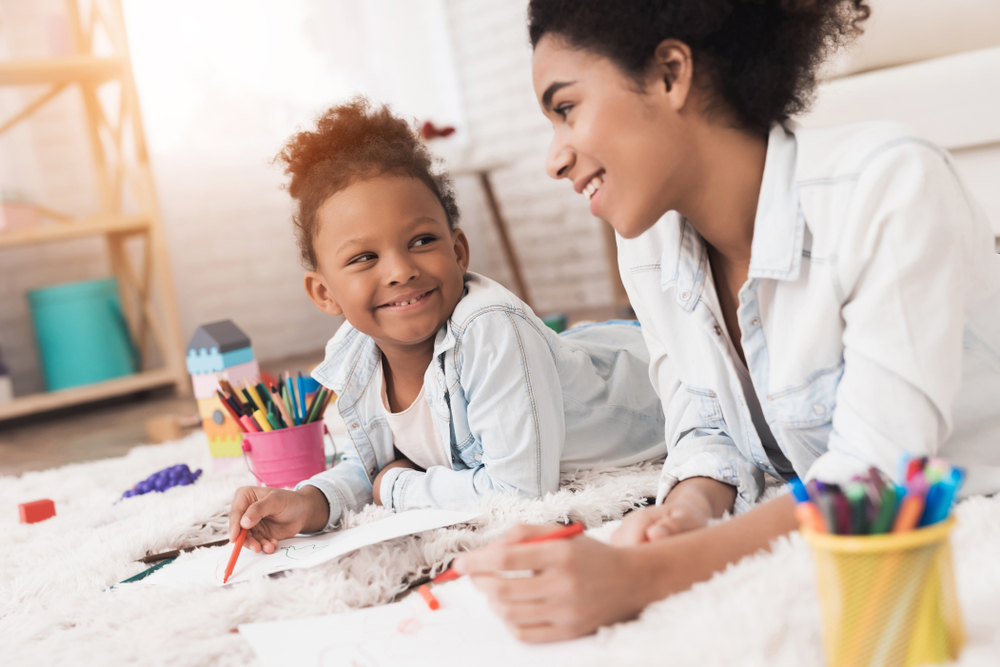If you’re a parent, you’re likely being asked to go above and beyond right now. Helping your kids with their schoolwork and keeping them entertained (not to mention safe and fed) — while also navigating your own work and household duties — can be stressful. And on top of all your daily responsibilities, you’re also probably conscious that this challenging time can spike kids’ stress and anxiety.
Parenting wasn’t easy even in our pre-pandemic world, and now it may be harder to be there for your children in the ways they need. Yet you’re juggling it all, learning because of it, and coming away from this experience even stronger than before — and your kids are, too.
We asked our Thrive community to share how they are helping their kids cope during these stressful times. Which of these strategies will you bring home to your family?
Get them involved
“I have two boys under five years old. They both love socialising — they’ve been going to nursery and school since they were just six months old, so lockdown has been particularly challenging for them. They miss their friends. I’m a dog groomer with four dogs at home, so I’ve hired my kids to help me groom, train, and walk them every day. This keeps them busy and helps them feel good, too. The bonus: The kids get a wage at the end of the week that they’ve been putting away in their piggy banks for when lockdown is lifted.”
—Stephanie Zikmann, holistic dog groomer, Scotland
Emphasize the importance of mental health
“I talked to my children about ‘mental health days’ when this first started, and I told them to let me know if they ever need to take a break. I explained that we will all have bad days, and sometimes it helps to simply relax and take care of ourselves. They have been very good about requesting a mental health day once in a while.”
—Kristine Gentry, Ph.D., anthropologist, Houston, TX
Start weekly acts of kindness
“I’ve invited my kids to participate in weekly acts of kindness, in which we show appreciation for the people delivering our packages, or put together kits for homeless individuals in our town. It’s crucial that they understand how blessed we are, and that there are people who sacrifice and suffer much more than we are. Plus, showing appreciation and being kind reduces anxiety and stress.”
—Giancarlo Molero, happiness expert, Miami, FL

Be open about how you’re feeling
“I’ve been helping my two high school daughters manage their stress and anxiety by sharing my own. As I share with them that I am also stressed and worried right now, I talk about the ways that I am consciously working to cope with these feelings. I let them know that my daily walks around the neighborhood calm me. I remind them how frazzled I was the day after I stayed up too late watching HGTV home improvement shows. I realized my mistake and now try to stick to a better nighttime routine. I ask them what they can do when they feel stressed. I encourage them to try new plans and shake things up a bit. I make sure they leave each of our conversations knowing that it’s OK to be stressed and anxious, but what isn’t OK is to let those feelings take total control. We can each take back control by recognizing our feelings, acknowledging them, and coming up with a plan to cope.”
—Christine Kotik, ADHD coach, Columbus, OH
Empower them
“I’ve been helping my 11-year-old cope by showing him how capable he is! We have biked more miles than ever before, and he has pedaled up some pretty hard hills. I guide him through challenges and take them as an opportunity to relate those experiences to life in general. Secondly, I let him be upset. Allowing him to be emotional and vulnerable during this time, and reminding him I am here for hugs, pep talks, or whatever he needs, has been helpful. Sometimes, all you really need is a good cry.”
—Reegan Hebert, director of sales and marketing for a senior living community, Dayton, ME
Don’t buy into perfection
“During this stressful time, I’ve had to navigate finishing my executive MBA, completing work projects, and homeschooling. It all started getting to me. I wasn’t able to complete tasks and often felt fatigued and irritable. My kids were unhappy and worried about me. I decided to take positive action, first by recognizing that homeschooling didn’t need to be perfect. I try my best, but I can’t assist with every single worksheet, video lesson, and Zoom call for each of my children on top of the rest of my responsibilities — and that’s OK. I sat down with my kids and we made a family plan because what we were doing simply was not working. We listed out our schedules and responsibilities and mapped out what our days will look like. One family cuddle puddle is required daily! And with self-compassion and laughter, we’ve been getting by.”
—Annie Leib, M.B.A., pharmaceutical consultant, Philadelphia, PA
Find a schedule that works — but don’t be afraid to be flexible
“We live in an urban setting and get limited outdoor time, which makes this time difficult for my 5- and 7-year-old. We make sure to go for hour-long walks every day and let them run out their stress. We also have been drawing and coloring a lot, asking them to express their emotions with pictures and words. Finally, as we head into summer, we are much more relaxed about schedules, allowing them to play board games, do arts and crafts, and watch movies.”
—Mita Mallick, head of diversity, Jersey City, NJ
Relentlessly prioritize
“I make it a point to spend at least 30 minutes every single day meditating, reading inspiring books or articles, or listening to inspirational videos or podcasts. I also make it a point to limit the amount of news I consume, so I can ease my anxiety levels. Another way I have been able to keep going through this new normal is ruthlessly prioritizing, and recognizing needs versus wants. At times, it’s hard to prioritize because my mind tells me that everything is a priority, I do a truth check to stay on track. One of those things is my kid’s education. My mind often leads me to nag her to ensure she is doing everything she was doing in school before the pandemic. However, when I do a truth check, I realize that if I drive her crazy by nagging her, she may never learn the art of letting go and living!”
—Shikha Rastogi, project manager, San Diego, CA
Keep it real
“Living in the middle of Manhattan has been stressful for our entire family. At first, my husband and I would watch Governor Cuomo daily for the updates, and protected our two teenagers from the details of the rising death tolls and frightening uncertainty. Then, we started embracing the spirit of ‘New York tough’ — so we needed to stop sugar-coating reality. We started a daily check where we’d talk about what happened that day, then everyone would share what we call rose, bud, thorn. These are personal reflections on a good thing — rose — a hopeful thing for the future — bud — and a challenge or problem — thorn. We were surprised by our kids’ mature responses. Sharing emotions on this level has brought us closer together as a family.”
—Helene Rutledge, entrepreneur, New York, NY
Do you have a creative or foolproof strategy for helping your kids deal with coronavirus stress and anxiety? Share with us in the comments!
Follow us here and subscribe here for all the latest news on how you can keep Thriving.
Stay up to date or catch-up on all our podcasts with Arianna Huffington here.


